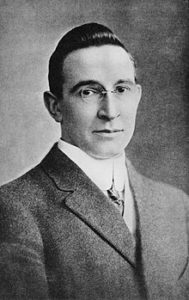 This quotation was in SmartBrief on Workforce, one of the useful email publications I read regularly. It speaks to a fundamental choice we all make, whether consciously or not. I share it today so you can be aware of the choice you make, and decide if that is the choice you want to make moving forward.
This quotation was in SmartBrief on Workforce, one of the useful email publications I read regularly. It speaks to a fundamental choice we all make, whether consciously or not. I share it today so you can be aware of the choice you make, and decide if that is the choice you want to make moving forward.
“Better to be occasionally cheated than perpetually suspicious.”
– B.C. Forbes, journalist, founder of Forbes Magazine
Questions to Ponder
- Are you willing to be “occasionally cheated?”
- Do you agree with the premise of this quotation?
- If not, how would you summarize your belief on this topic?
Action Steps
- Think about how much trust you grant and why.
- Think about the implications of your choices in terms of relationships, influence, and more.
My Thoughts
In my book, Remarkable Leadership, I wrote about what I call the trust thermostat. The trust thermostat is my way of talking about the sub-conscious level of trust that we grant people in various situations (prior to the development of history and relationship). At some level, it is our gauge on human nature and our beliefs about it. It is like a thermostat, in that we continually move back to the level we have set. We can assume that Mr. Forbes, by his quotation above, would have a high setting – willing to trust and be hurt occasionally rather than be too cautious.
If you read and think about the questions above, and take the actions I suggest, you will begin to understand where you have set your thermostat. While I have a personal belief about which type of setting will give you the greatest long term happiness and success (and it aligns with the quotation today), my goal here isn’t to preach, but to shine a light on an important issue for you consider in your own life.

In a trust fall exercise we have confidence in the ability of our teammates to catch us. We rely on them to carry through on their abilities and successfully arrest our gravitational advancement. But we trust for them who they are and trust that they will be of sufficient character to not walk away and let us fall to terra firma.
Finding trust though is difficult when we have no data on which to base our confidence or reliance. And how do we trust someone for who they are when we don’t know who they are? Is this the line where trust becomes faith?
Daniel – you raise a fundamental question; one each of us must answer. While situations and circumstances play into it for sure, I personally believe that when we start from a position of greater trust – even when we don’t “know” we will get better outcomes and a faster building of trust with that person, and others too, as we develop a new habit and approach to trust.